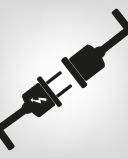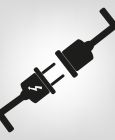Relationships
“Pandemic Fatigue” Takes a Toll on Relationships
Three suggestions for taking a pause and effectively coping.
Posted May 4, 2020 Reviewed by Kaja Perina

by Kathryn Zerbe, MD
Have you found that you get your hackles up easily these days? After a couple of hours of work or chores, you’re exhausted and sputtering, ready to plop on the couch and bark at everyone to just back off.
Emotional bandwidth seems frayed to a breaking point, just as it is supposed to stretch across the nation to stay connected. You worry about how you’ll make it through the next hour without taking someone’s head off and then feel guilty and ashamed about complaining when so many others have it worse.
Fatigue. Irritability. Impatience. Over reactivity. Self- reproach. A desire to temporarily curl up and shut out the world. These are some of the cluster of symptoms and feelings for which I’ve coined the term “Pandemic Fatigue.” We began to experience some of its effects on body and psyche several weeks into the national shutdown. When we suffer from a bout of pandemic fatigue, we wonder where all the vim and imaginative suggestions that propelled quick adaptations to the crisis went.
Jessica’s (not her real name) tale is a case in point. She felt easily annoyed and physically worn out after only being awake for a couple of hours. She knew that she wasn’t ill because she was following her daily schedule to a tee and completing her tasks. Everyone in her household had settled into their new housebound reality. Jessica was finding time to stick to routine workouts and yoga practice
“I’m never this crabby. I lashed out when my best friend called to see if I needed anything from the grocery. Afterward I was embarrassed. Then I just wanted to go into my shell and hide. It makes no sense whatsoever because my family and I have our basic needs met and then some. What’s the matter? I’m starting to feel like I’ve aged ten years in a couple of weeks and am really an obnoxious, entitled person.”
Coping with pandemic fatigue becomes a little easier when we understand its roots. Take a step back and appreciate how our physical and psychological beings made enormous shifts in record time. What started out as the excited rush to get all the preparations done right away gave way to living with different demands. No clear end is in sight. Pandemic fatigue is the cumulative effect of the significant energy output of those original and ongoing “seat of the pants” adjustments that ratcheted up our stress response.
Consider how many billions of neurochemicals like dopamine, the endorphins, and noradrenaline and blood glucose stores were used up in your body to take on this full throttle, emergency transition. Cortisol skyrocketed to assist but has lingering physiological effects. Tie this biological onslaught to how your brain continues to work overtime every day to care for yourself and loved ones. It’s the perfect combination to light the fuse of pandemic fatigue.
These psychological and biological factors mix with unpredictable consequences in what psychoanalysts describe as a complemental series. Individual temperament, heredity, past and current environment, culture, and trauma, layer to contribute to each person’s unique reaction to the pandemic. Complemental series avoids the old “nature or nurture” debate. It takes into account how all factors that can and do impact an individual.
The principle of complemental series is important to remember as we navigate our way through the crisis. Tolerance and patience are required. Everyone has individual needs and vulnerabilities because of our innate constitution and prior experiences. What is easy for one person to accomplish is overwhelming to her neighbor, but everyone is similarly challenged by the enormity of the crisis and its uncertainties.
Consider how even a grocery run is no longer a break. It requires an entire thought process from how to protect yourself and others to getting in and out as quickly as possible. No more lolly-gagging amongst the produce counters where you might grab a moment to peacefully drift into your own thoughts. The mind depends on those typically subconscious moments to restore itself and to function well.
The prescription for coping better with pandemic fatigue begins by finding a way to pause. This suggestion may be difficult to implement because every individual’s situation is unique. You may find that little changes add up to big benefits rapidly when you claim your right for a temporary stop that complements your particular biology and psychology.
Three Suggestions on How to Take a Pause
- Make a 10-to-20-Minute ‘Full Rest Stop’ a Priority. Let your thoughts wander where they will. You don’t have to journal or to practice anything. Tell yourself (if you find this self -indulgent) that you are clearing away emotional debris in your mind to feel better. You are.
- Embrace the Art of Doing a Simple, Repetitive Task. Now may not be the best time to challenge yourself with learning to play a fugue on your ukulele but it’s a marvelous opportunity to strum to songs that are easy. Activities that don’t demand much concentration allow the brain to reset and modulate emotion.
- Take an Hour Off for Friendship. Quality conversation is restorative. It’s the prescription for getting through a siege that Albert Camus wrote about in The Plague. The protagonists in the novel sustained each other through their worst moments by authentic dialogue.
Make someone else’s day by writing a letter or sending a card that acknowledges your appreciation of them. New research attests to how handwriting benefits the brain. You just nabbed a twofer — bolstering your resilience by exercising neural networks and enhancing an interpersonal connection in spite of the virus.
Kathryn Zerbe, MD is a psychiatrist and psychoanalyst in private practice in Portland, OR. Over her 40-year career she has taught and written extensively about how insight into the body/mind connections and psychotherapy can improve self-care, resiliency, and quality of life in adults.
Facebook image: Tirachard Kumtanom/Shutterstock




